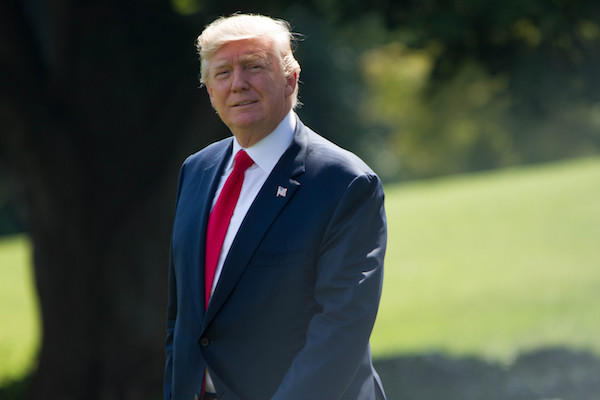Politics
JUST IN: Trump Gets Great News From DC Case

The Washington D.C. federal court has removed the highly anticipated criminal trial of USA v. Donald Trump from its original schedule of March 4, 2024. The development is seen as a notable victory for the former President amidst ongoing legal battles and speculation.
Trump has been embroiled in a series of legal challenges, with this case being among one of the most closely watched. The trial’s removal from the calendar comes as Trump and his legal team await an appeals court decision regarding his claim of “Presidential immunity” among other potential procedural delays that could significantly impact the case’s progression.
The specifics of the case have been the subject of intense scrutiny, given its implications for Trump’s political future and the broader questions of presidential powers. Trump’s legal team has argued that his actions, which are under question in this case, were carried out in his capacity as President and thus he should be granted immunity from prosecution.
The trial’s schedule, coinciding with the crux of the primary season, was long expected to be scrutinized from Republicans. Significantly, the onset of the trial was just one day before the Republican nomination process of Super Tuesday.
On August 1, Trump faced four federal indictments as a result of Smith’s January 6 inquiry.
When the date was set, Trump expressed his dissatisfaction with the court’s decision, which granted him only a two-month extension for his trial. He described it as “biased” and “Trump Hating” and insinuated that the timing of the trial was a calculated move by a “corrupt government.”
The charges encompass conspiring to defraud the United States, plotting to obstruct an official proceeding, obstructing and attempting to obstruct an official process, and conspiracy against rights. Trump has staunchly refuted all allegations, asserting his innocence.
The defense team for Trump had initially proposed a trial start date in April 2026, well after the results of the 2024 presidential election would be known. However, this request was firmly rejected by Judge Chutkan, who stated, “I can tell you right now you are not getting two years. This case is not going to trial in 2026.”
Chutkan has issued an order, however, preventing Smith from submitting any significant new motions during the period the immunity issue is under review.
The case involves a significant amount of evidence, including documents, communications between Trump and his associates, and public statements made by Trump that purportedly aimed to cast doubt on the election results. The defense and prosecution are expected to examine a vast array of evidence, leading to Trump’s lawyers’ request for a trial delay to thoroughly review the materials.
This trial is one of several legal challenges Trump faces, including investigations into financial practices and other actions during his presidency and campaign. It’s part of a broader legal and political narrative concerning the aftermath of the 2020 election and the events leading up to the January 6 Capitol breach.
Prior to the 45th, no former U.S. president had ever faced indictment. Trump has been indicted on a total of 91 felony charges spanning four separate criminal cases.

